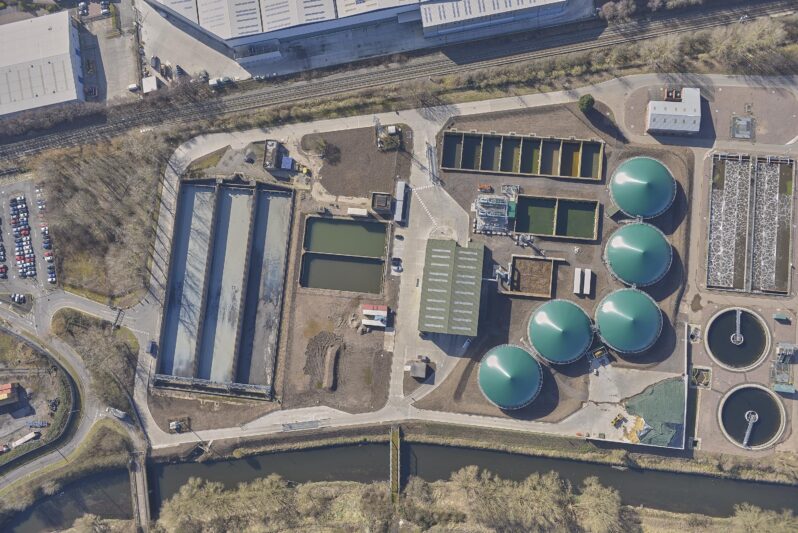Last Updated: 30 December 2024
Anaerobic digestion might not be a household term, but its impact on our world is profound. This natural process, which occurs in the absence of oxygen, is a powerful tool in waste management and renewable energy production.

The magic of anaerobic digestion lies in its ability to break down organic matter. From food scraps to agricultural waste, it transforms what we often view as waste into valuable resources. The result? A cleaner, more sustainable world.
One of the key products of this process is biogas. This mixture of methane and carbon dioxide serves as a renewable energy source, reducing our reliance on fossil fuels. It's a win for both the environment and our energy bills.
But the benefits don't stop there. Anaerobic digestion also produces a nutrient-rich by-product known as digestate. This can be used as a fertiliser, supporting healthier soils and more sustainable agriculture.
Let’s delve deeper into the benefits of anaerobic digestion. From its environmental impact to its role in sustainable development, we'll explore why we believe this process can be a game-changer for our planet.

Lifting the lid on anaerobic digestion
Anaerobic digestion stands as a testament to nature's efficiency. By harnessing microbes that thrive without oxygen, this process breaks down organic waste, transforming it into renewable resources. It's an ingenious way to solve two problems at once: waste management and energy production.
The process itself is incredibly versatile. It can handle a wide range of organic materials, from food waste to sewage sludge. This adaptability makes it an ideal solution for diverse settings, from small farms to large urban areas. By taking advantage of anaerobic digestion, we can turn what was once considered waste into a powerful ally for sustainability.

The environmental impact
Anaerobic digestion offers profound environmental benefits. It captures methane, a potent greenhouse gas, preventing its release. This reduction in emissions makes a significant difference in our battle against climate change.
Managing organic waste effectively is another major advantage. Anaerobic digestion reduces the volume of waste destined for landfills. This not only conserves valuable land space but also mitigates pollution risks.
Here's how anaerobic digestion positively impacts the environment:
Cuts methane emissions by capturing and converting them into energy.
Limits the volume of waste going to landfills, lessening potential toxins.
Promotes a circular economy by recycling nutrients and organic matter.
These contributions highlight why anaerobic digestion plays a crucial role in sustainable waste management strategies. By incorporating this technology, we can foster a cleaner, healthier planet for future generations.
From waste to watts: Energy production and renewable energy benefits
Anaerobic digestion is not just about waste management. It's also an innovative approach to energy production. By converting biogas into electricity and heat, this process transforms waste into valuable resources.
The biogas generated predominantly contains methane. This methane can be a reliable renewable energy source, reducing reliance on fossil fuels. It offers a steady supply of energy, contributing to local energy security.
Here are some key benefits of energy production through anaerobic digestion:
Produces renewable energy, lessening dependency on non-renewable resources.
Supports waste-to-energy initiatives
Enhances energy security by offering a stable UK-based energy source.
These attributes underscore the role of anaerobic digestion in the transition toward greener energy solutions. By utilising this technology, we can harness waste as a resource, driving progress in renewable energy development.

Managing waste and supporting farms
Anaerobic digestion supports agricultural sustainability. The digestate, a by-product of the process, is a nutrient-rich material. It can be applied as a natural fertiliser, enhancing soil health and crop productivity. This use of digestate closes nutrient loops, supporting a more sustainable approach to farming. With this technology, farms can reduce chemical fertiliser reliance while managing waste effectively.
Cost savings and job creation
Anaerobic digestion presents several economic advantages that can benefit communities and businesses alike. By converting organic waste into biogas, it reduces waste disposal costs. This translates into savings for councils and companies managing large waste volumes.
In addition to cost savings, anaerobic digestion creates job opportunities. The construction and operation of digestion facilities require skilled workers. These roles span various fields:
Engineering and technology
Plant operations and maintenance
Research and development in renewable energy
Overall, anaerobic digestion fosters economic growth by lowering expenses and boosting employment opportunities in the renewable energy and waste management sectors.
Fertilising the future
One by-product of anaerobic digestion is digestate, a nutrient-rich material. This by-product is an excellent natural fertiliser. It recycles nutrients back into the soil, promoting sustainable agriculture practices.
Digestate supports healthier crops while reducing dependence on synthetic fertilisers. This benefit not only enhances soil health but also lessens environmental pollution. By integrating digestate into farming, we contribute to a circular economy. This practice aligns well with sustainable agricultural goals and helps close nutrient cycles. As the country adopts anaerobic digestion, the role of digestate in future farming becomes increasingly significant.
Embracing anaerobic digestion
Anaerobic digestion offers significant environmental and economic benefits. By turning waste into renewable energy, it plays a crucial role in sustainable development. This powerful technology helps communities reduce waste, lower emissions, and generate cleaner energy. Embracing it creates a greener, more sustainable future for all.